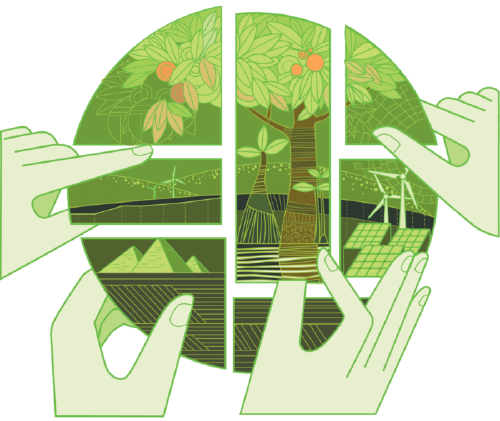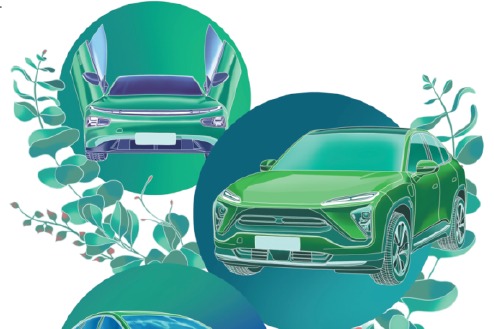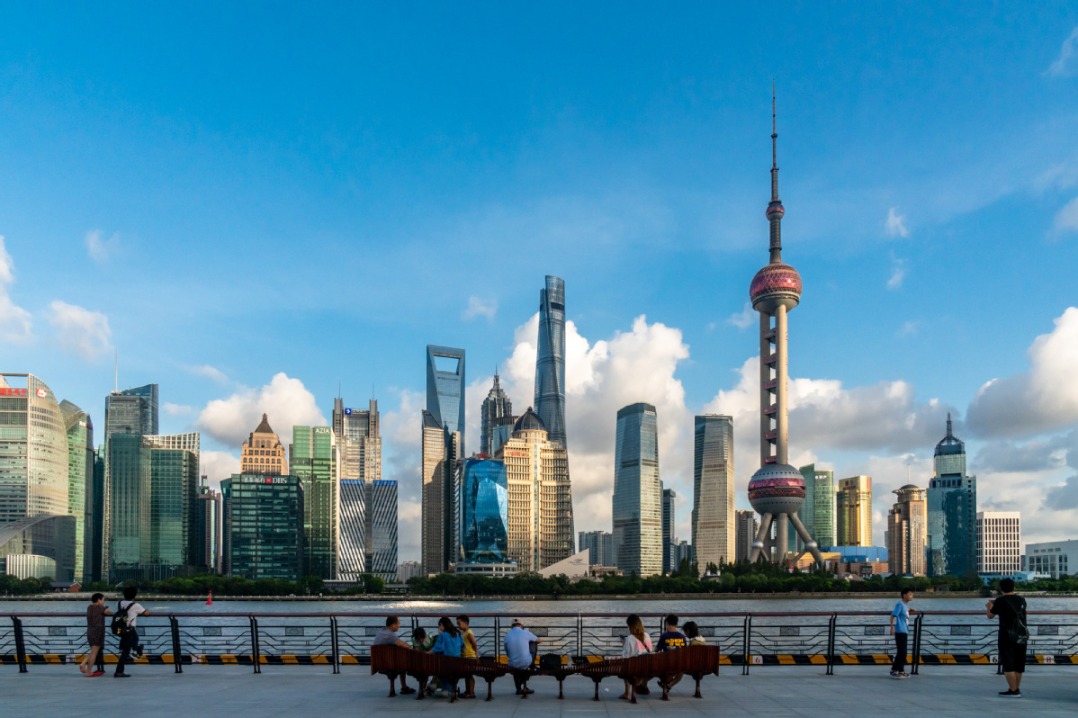Hope is in the doing


The world should look outside the diplomatic bubble on climate change and focus on what matters most
The world will meet in Sharm el-Sheikh, Egypt. Expectations are so low that no one will be disappointed. Nothing will happen diplomatically in Egypt. Political leaders, businesses and civil society will come together. Green business deals may be made, coalitions of the willing may be formed, but these will not be the results of the diplomatic process.
The good news is that this doesn't matter much. It's all about the political economy now. Compared to the steps taken by the top leaders of the world and by the major companies, diplomacy is secondary.
The decision of President Xi Jinping to stop China's investment in overseas coal-fired power projects was much more important than last year's climate conference in Glasgow, Scotland. The election of Luiz Inacio Lula da Silva as Brazil's president, who will strive to protect the Amazonian rainforest, is much more significant than Sharm el-Sheikh.
Diplomacy tends to become a bubble, impertinent to the world outside. In Glasgow, the main focus was on whether to "phase down coal" or "phase out coal".This focus on wording obscures the real issues related to the green shift. Some Westerners in their arrogance even blamed India for causing a climate block last year due to its choice of wording, even though the per capita emissions of the US up to today is 25 times that of India.
The source of optimism is not in diplomacy but in the political economy. It is true that the speed is still too slow, but all the main economies are now acting with determination and vigor. China is a world leader in all green technologies and many best green practices. US President Joe Biden just got his $370 billion climate bill through the US Congress. The European Union is moving ahead with the European Green Deal and the European taxonomy, using the conflict in Ukraine as an occasion to move toward energy independence based on renewables. And in India, Prime Minister Narendra Modi is launching new solar initiatives by the day and will soon make India the second solar power in the world next to China.
The way to realize a global climate solution is through these win-win policies. For the first time in human history, it is no longer a choice between the economy and ecology. Renewables make it possible to move toward an ecological civilization, improving people's well-being and the economy while being more humble in how we treat the Earth.
We have all the political solutions, all the technologies and all the finances we need. It is just a matter of focusing the political will and getting up to the required speed in a determined way. We should see climate action as an opportunity, not a burden. President Xi got it exactly right: Lucid waters and lush mountains are invaluable assets.
China is the world leader in all green technologies. About 82 percent of all solar panels and 70 percent of all electric batteries were made in China last year. China sees going green as a way to leapfrog into a future where China can contribute substantially to the world's key green markets, and create green jobs and prosperity at home.
The rest of the world should allow itself to be inspired by China's success.
In India, a young company called Ola just opened a factory for electric scooters. The entire workforce of 2,000 are young women. "Tesla for the West, Ola is for the Rest" is their slogan. They are confident that they can dominate the future markets with green, low-price products. That is an example of the spirit that is needed.
In Norway, nearly 90 percent of all new cars sold in the last month were electric. Norway is also a world leader in electric ferries. This is due to good policies from the government that have helped the market introduce change. China, no doubt, is by far the world leader in electric mobility by scale, even if Norway leads by percentage. The examples of China and Norway show the world: Big or small, it's all possible.
Tree planting and the greening of landscapes are essential. China is the world's biggest tree-planter by far. President Xi has promised China will plant an area the size of Belgium every year from now until 2025. The greening of the Kubuqi Desert in the Inner Mongolia autonomous region or the beautiful forests of Saihanba in North China's Hebei province are shining examples which can lead the world. A lot is happening worldwide. Indonesia last year had zero deforestation thanks to great policies by the government and a resolute focus on deforestation-free value chains from giant paper and pulp companies such as RGE. In India, the chief minister of the State of Madhya Pradesh is planting one tree every day to inspire the 80 million residents of his state. Lula, who will be sworn in as president of Brazil in January 2023, has a long track record of stopping deforestation in Brazil and will act with determination.
A circular economy is the key to the green shift. We have a long way to go, but the circular economy is also an opportunity for win-win solutions. There is more gold in one kilo of electric waste than in a kilogram of gold ore from nature. The recycling of plastics, electronics and clothes are critical opportunities for improving the economy and ecology at the same time. China is launching many initiatives for better waste management and recycling. I believe we will see a sea change into a circular economy. More significantly, in its 14th Five-Year Plan for Circular Economy Development promulgated in July last year, China unveiled its blueprint for the circular economy. The plan specifies that China's energy and water consumption per unit of GDP will be lowered by about 13.5 percent and 16 percent respectively by 2025 from the 2020 levels.
Environmentalists are right to point to a triple environmental crisis hitting our planet — pollution, climate change and the destruction of nature. But to find the solutions, we must shift focus from diplomacy to the political economy. When former US president Bill Clinton won his presidential election in the US against all odds, he had a slogan in his electoral headquarters. "It's the economy, stupid". He was right.
The author is president of the Belt and Road Initiative Green Development Institute and former executive director of the United Nations Environment Programme. The author contributed this article to China Watch, a think tank powered by China Daily.
The views do not necessarily reflect those of China Daily.
Contact the editor at [email protected]


































